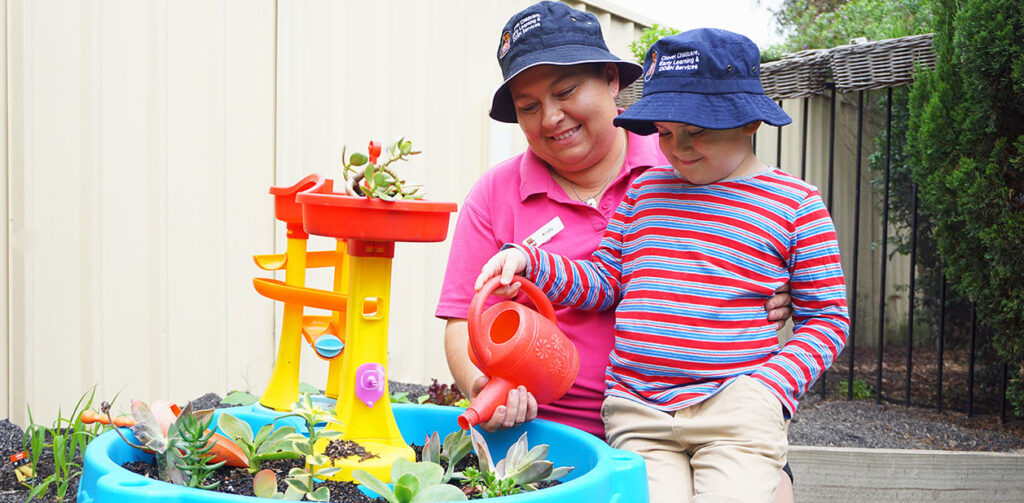When you were a child, did you have a favourite storybook? The benefits of storytelling for children are infinite. Stories bring comfort and offer a fun way for children to explore their imagination and develop language skills.
Introduction – The Power of Storytelling in Early Years
Stories can help your child unlock and understand emotions that would otherwise be difficult to comprehend. Through storytelling, your child is exposed to a range of different emotions in a safe and calm environment.
Additionally, when your child starts reading at a young age, they’re expanding their vocabulary and learning new ways of expressing themselves.
At Clovel Childcare, we nurture a loving environment where storytelling is a core component of our play-based program.
Cognitive and Language Benefits of Storytelling
Reading stories to children comes with many benefits, including:
Vocabulary expansion and comprehension
The best way to expand your child’s vocabulary is through reading. Even as adults, we're constantly discovering new words every time we open a book. Imagine the boundless possibilities that open up for your child.
Development of listening and concentration skills
Reading a book requires deep focus. As your child engages with stories, they'll naturally cultivate improved listening and concentration skills. The more your child dedicates time to reading, the more they’ll learn to sit still and absorb information.
Enhancing memory and critical thinking
Storytelling in early literacy encourages your child to analyse characters, predict storylines, and recall key events. As children are naturally curious, they may be eager to problem-solve and invent solutions for their favourite protagonists, opening the door to critical thinking.
Emotional and Social Growth Through Stories
A child who is engrossed in a story is bound to develop a vivid imagination, but the benefits don’t stop there. Here are some other ways your child can benefit from storytelling:
Building empathy and understanding diverse perspectives
Through reading, we’re gifted a passage into new worlds, different from our own. As your child navigates these narratives, they gain an intimate view of the characters’ emotions, challenges, and perspectives. When characters express intense feelings like sadness, frustration, or disappointment, it offers a crucial opportunity for children to build empathy and understanding.
Strengthening parent-child and educator-child bonds
Another wonderful benefit of storytelling for children is the beautiful connection that develops. Doesn't it feel cosy and comforting to tuck your child into bed and read a story together? That's because stories help us feel seen and understood, which in turn strengthens your special bond. Likewise, educators can create a safe space for children by engaging in storytelling and open expression.
Encouraging self-expression and confidence in young learners
Storytelling is a playground for feelings. They help children identify emotions, share thoughts, and express ideas that might be hard for them to articulate. With every book, your child is transported into a new world. They gain the unique perspective of its characters, experience distant places firsthand, and develop new ways of thinking. As children begin to understand themselves and those around them more, their confidence will flourish.
Storytelling Techniques to Enhance Literacy Skills
Literacy development is central to a child’s reading, writing, and overall communication. Here are a few storytelling techniques that can help keep your child engaged:
Interactive Storytelling Methods
As you read to your child, you have the power to bring stories to life. You can make it an enthralling experience by asking questions and using prompts to help them think more deeply about the story. This encourages them to get more involved, share their opinions, and develop their unique interpretations.
Use of Props and Visual Aids
Reading might be the last thing on your child's mind when running around and playing sounds so much more fun. That's where puppets, pictures, and storyboards come in – they're a great way to keep things interesting, spark curiosity, and keep your child focused.
Repetition and Rhymes
There’s a reason children love repeating nursery rhymes. These playful verses are a powerful tool for developing their self-expression and memory. More importantly, they're a fun and silly way to engage their developing minds. In fact, they’re so memorable that classic nursery rhymes, such as ‘Old MacDonald Had a Farm’ and ‘Twinkle, Twinkle, Little Star’, still resonate with us today.
Integrating Storytelling into Daily Activities
Did you know that children are natural storytellers? Below are some ways you can weave storytelling into daily activities to significantly enhance your child’s language development:
Literacy Activities for Preschoolers
Incorporating fun activities like designing story-based games, encouraging drawing, or role-play scenarios can transform reading into an exciting adventure. These activities help your child delve deeper into the plot and characters, while also providing space to explore their imagination and step into different roles.
Preschool Storytelling Ideas
Everyone has a story to share. Whether it's relying on a fun prompt or asking your child to recap their experiences of the day, encouraging your child to talk more about their thoughts, feelings, and observations can enhance their storytelling language skills.
Clovel Childcare's Approach to Storytelling and Literacy
Language and communication are fundamental to your child’s self-expression. The ability to share their thoughts, feelings, and experiences is crucial for developing a strong sense of self and building confidence in who they are, especially during the early years of their life.
At Clovel Childcare, we wholeheartedly believe storytelling is an exciting way to engage children in language development. Our literacy program encourages children to immerse themselves in dramatic arts, reading aloud, and poetry recitation, allowing their imagination to truly lead.
As you can see, the benefits of storytelling for children are endless. When you enrol your child in our program, our educators provide a loving and nurturing environment, supporting your child’s language journey through gentle and compassionate guidance.












